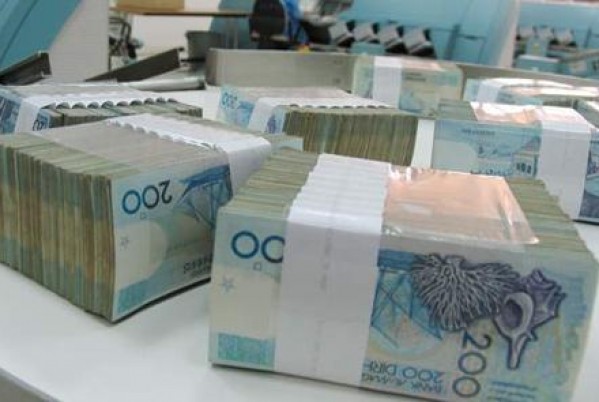Xinhuanet
By Ahmed Eljechtimi
Reuters
Morocco’s central bank left its benchmark interest rate unchanged at 2.25 percent on Tuesday, saying current borrowing costs are consistent with medium-term inflation and growth prospects.
Separately, the bank said the kingdom would issue its first sovereign Islamic bond – or sukuk – worth 1 billion dirhams on Oct. 5.
Inflation, driven mainly by food prices, is expected to reach 2.1 percent in 2018 before easing to 1.2 percent in 2019, the Bank Al Maghrib, or central bank, said in a statement.
It said it expected the Moroccan economy to grow by 3.5 percent in 2018, citing an improvement in agricultural output, and 3.1 percent in 2019.
Agriculture represents 14.5 percent of Morocco’s GDP. The North African country expects an exceptional cereals harvest of 10.3 million tonnes this year.
Based on an average global oil price of $69.8 a barrel, the current account deficit should widen to 4 percent of GDP in 2018 before narrowing to 3.7 percent in 2019, the bank said.
The budget deficit was seen at 3.7 percent of GDP in 2018 and 3.3 percent in 2019.
Foreign exchange reserves will remain almost stable at 240.8 billion dirhams ($25.8 billion), enough to cover five months and 10 days of imports at the end of 2018.
At a news conference, Central Bank Governor Abdellatif Jouahri said the foreign exchange interbank market was functioning well and there was no need for the central bank to intervene to support the dirham.
He told reporters it was too early to talk about a further liberalisation of the dirham after Morocco began a more flexible exchange rate in January.
Moroccan banks have a plentiful supply of hard currency and have even offered to sell some to the central bank, he added.
Total public debt was expected to be at 82 percent in 2018 and 81.4 percent in 2019, the central bank said.
He said Morocco would issue an international sovereign bond next year without giving further details, saying it was up to the finance and economy ministry to determine the amount.
In the case of major external shocks such as a spike in oil prices, Morocco could reconsider the renewal of the IMF’s Precautionary Liquidity Line (PLL), he said.
Jouahri said Morocco would sell its first sovereign Islamic bonds on Oct. 5 as domestic issue, opening a new market in the kingdom. It would be an ijara issue, he said, referring to a transaction legal type.
Long rejected because of concern about Islamist movements, Islamic banks are looked on as a way to boost the liquidity of Morocco’s financial market and attract foreign investors.
Morocco is the most advanced among its North African neighbours in developing Islamic finance, which avoids interest and pure monetary speculation. (Reporting by Ahmed Eljechtimi; editing by Ulf Laessing and Richard Balmforth)







